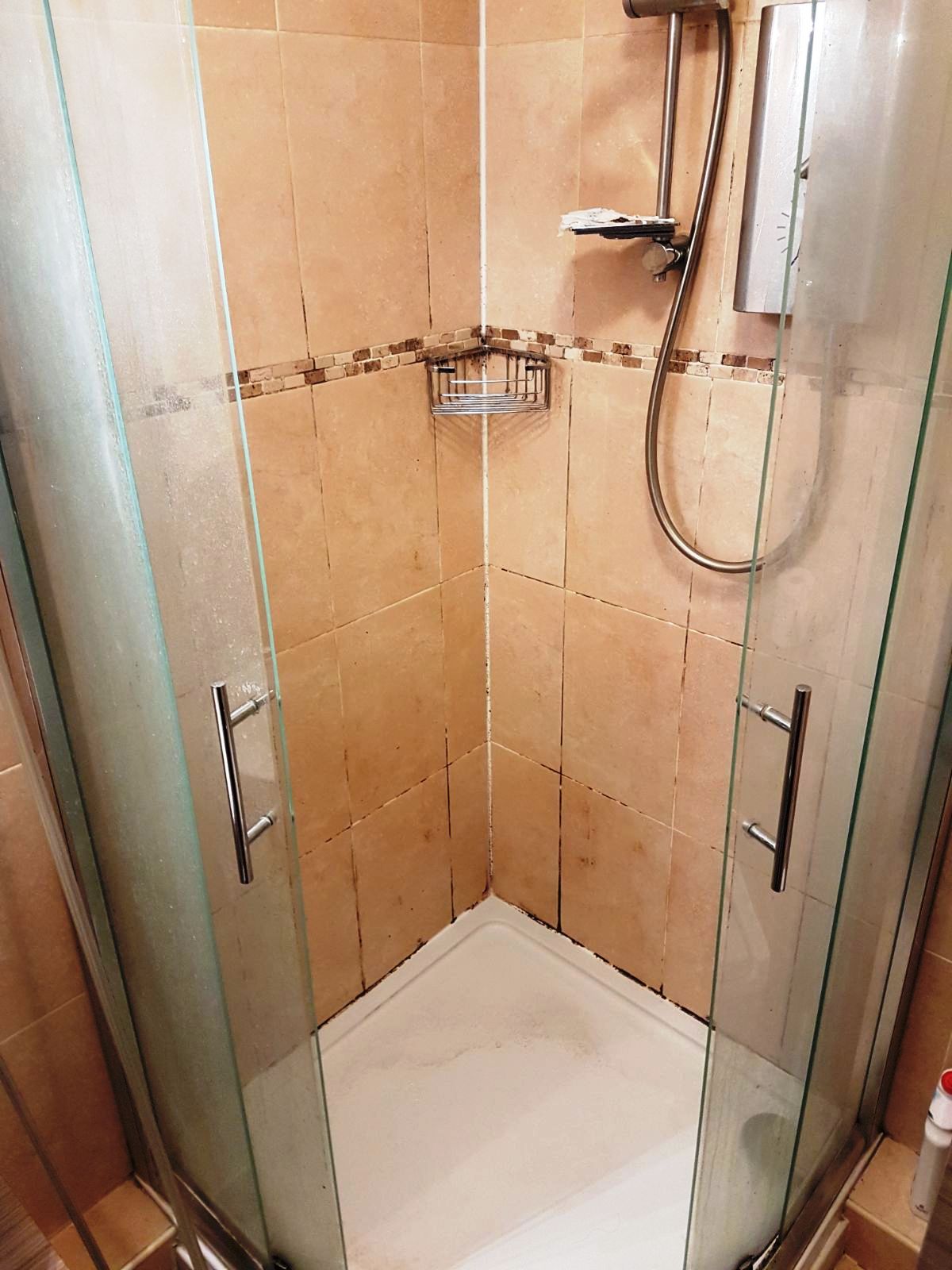Click here to get this post as a PDF
Ceramic and most Porcelain tiles are very easy to clean which makes them a good choice for shower cubicles, the one problem you will find though is that due to the cementitious nature of grout the top layer does attract dirt as can silicone. As a result, we recommend rinsing down showers with Tile Doctor Oxy-Pro on a regular basis or the problem will build. Mould can also be a problem especially if your bathroom is quite small or has inadequate ventilation to extract the hot steam in which mould thrives.

This Ceramic tiled shower cubicle at a house in Uxbridge had all these problems and would need something much stronger to deal with the mould and remove the limescale which had also built up. Limescale from hard water is a problem that affects 60% of the UK with the South and East of England is particularly impacted due to the local chalk and limestone geology the water is filtered through. Buckinghamshire is known to have hard to very hard water and these tiny mineral deposits build up slowly on the surfaces of shower cubicles during use.
Deep Cleaning a Ceramic Tiled Shower Cubicle
To get the shower cubicle clean I began by spaying the tile and grout down with Tile Doctor Duo Clean which is a dual action product that is designed to clean grout and remove mould. You leave the product on the tiles for ten minutes and then scrub it in with a stiff brush, it’s hard work and you need to repeat in the stubborn areas, but it gets good results.
The tile and grout were then rinsed down with water and left to dry whilst I popped out for lunch. On my return I dried off any damp areas with a heat gun and took a step back to review the work I had done.
The results were good but unfortunately there were still a few dark stains in the grout which I was unlikely to be able to remove. When this happens, I find the best solution to achieve a consistent appearance is to apply a grout colourant to the grout. Tile Doctor grout colourants come in ten colours are relatively straight forward to apply, I always keep some of the popular colours in stock and on this occasion, I felt a White colourant would work best.
Normally the first stage would be to prepare the grout first with a pre-treater but given the grout had already been scrubbed hard I was able to move onto applying the colourant with a small brush. Grout Colourants not only recolour and rejuvenate the grout lines but also adds a barrier over the grout sealing it in and protecting it from further staining.
Whilst waiting for the colourant to dry I stripped out the mouldy sealant strip between the tile and shower tray and replaced with mould resistant silicone.

The shower cubicle now looks much fresher and I’m sure will be a pleasure to take a shower in.
Source: Tile and Grout Cleaning and Renovation Service in Uxbridge